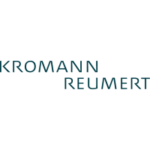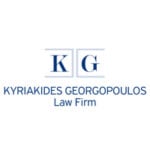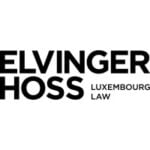-
Climate – the law governing operations that emit Greenhouse Gases (e.g. carbon trading) is addressed by Environment and Climate Change international guides, in respect of ESG: a. Is there any statutory duty to implement net zero business strategies; b. Is the use of carbon offsets to meet net zero or carbon neutral commitments regulated; c. Have there been any test cases brought against companies for undeliverable net zero strategies; d. Have there been any test cases brought against companies for their proportionate contribution to global levels of greenhouse gases (GHGs)?
As of now, Poland does not have a specific statutory duty that mandates companies to implement net zero business strategies. However, in 2019 the National Energy and Climate Plan (Pol. Krajowy Plan na rzecz Energii i Klimatu) was developed, thereby fulfilling the obligation imposed on Poland by the provisions of Regulation (EU) 2018/1999 of the European Parliament and of the Council of 11 December 2018, on the governance of the energy union and climate action. The current version of the Polish National Energy and Climate Plan sets i.a., 18,2% reduction in GHG emissions in non-ETS sectors by 2030 compared to 2005 levels; 32,6% share of RES in gross final energy consumption by 2030, taking into account: 17,7% share of RES in transport, and an annual increase in the share of RES in heating and cooling by 1.1 percentage points on average per year. Additionally, the net-zero energy system constitutes one of the three pillars of the Poland’s Energy Policy by 2040. Furthermore, the work is underway to implement the Net-Zero Industry Act into the Polish legal order.
b. Is the use of carbon offsets to meet net zero or carbon neutral commitments regulated?
Poland’s commitments, as Member State of the European Union, to net-zero emissions of carbon neutrality stem mainly from the regulations that make up the European Green Deal. One of the primary regulations for reaching climate neutrality is the so-called EU ETS Directive at the level of EU legislation, as well as the Polish Greenhouse Gas Emission Trading Scheme Act, which implements the EU ETS Directive’s provisions into the national legal order.
However, at the national legislation level there are no specific regulations that impose a statutory obligation (of a public-law character) to achieve net zero emissions or climate neutrality through the use of carbon offsets by domestic companies. Instead, a number of national regulations and solutions personalized for specific industries are in force, which are specific tools to encourage businesses to achieve climate neutrality.
c. Have there been any test cases brought against companies for undeliverable net zero strategies?
Consequently, there have not been any prominent test cases in Poland specifically targeting companies for undeliverable net zero strategies.
d. Have there been any test cases brought against companies for their proportionate contribution to global levels of greenhouse gases (GHGs)?
Similarly, there have not been any notable test cases in Poland specifically against companies for their proportionate contribution to global levels of GHGs. However, environmental litigation is increasing worldwide, and companies are facing more scrutiny regarding their environmental impact and sustainability claims.
-
Biodiversity – are new projects required to demonstrate biodiversity net gain to receive development consent?
In Poland, the concept of biodiversity net gain is not yet a formal requirement for obtaining development consent for new projects. However, environmental protection and biodiversity considerations are integral parts of the environmental impact assessment (EIA) process, which is required for certain types of projects.
During the EIA process, developers must assess the potential impacts of their projects on local ecosystems and biodiversity. This includes identifying any significant adverse effects and proposing measures to mitigate them. The goal is to ensure that projects do not lead to significant harm to biodiversity and, where possible, contribute positively to the local environment.
Notwithstanding the above, according to the Polish Construction Law, when developing the project the investors are also required to ensure adequate biologically active area, i.e. land with surfaces arranged in such a way as to ensure natural vegetation of plants and retention of rainwater. The specific percentage is set in the local zoning plans or zoning decisions and varies depending on the type of investment and its location. Biologically active areas have a beneficial effect on biodiversity creating favourable conditions for microorganisms and beneficial animals (e.g. insects) to grow and live, so that the entire ecosystem functions properly and the neighbourhood is vibrant.
-
Water – are companies required to report on water usage?
Yes, companies in Poland are required to report on water usage under certain circumstances.
According to the Act of 20 July 2017 of the Water Law, the obligation to submit reports on water and wastewater management applies to water service users, i.e. use of water beyond common, ordinary and special use such as: abstraction of groundwater or surface water, collection and treatment of wastewater; introduction of wastewater into waters or into the ground, including the introduction of wastewater into water facilities; use of water for energy purposes.
After the end of each quarter (within 30 days therefrom), entities using certain water services should provide the information on the actual volume of water use in a given quarter in the form of a statement addressed to the Polish Water Authority (and, in the case of reduced retention, to the mayor or city president). Based on the report, the variable fee for water use is determined. Additionally, water service users are also required to report to the Polish Water Authority the results of conducted measurements of the quantity of groundwater and surface water abstracted and the quantity and quality of wastewater discharged into water or into the ground, within the scope specified in the water permit or integrated permit by 1 March of each year for the previous year. Noncompliance with these obligations may result in a fine.
-
Forever chemicals – have there been any test cases brought against companies for product liability or pollution of the environment related to forever chemicals such as Perfluoroalkyl and Polyfluoroalkyl Substances (PFAS)?
There have not been any widely publicized test cases in Poland specifically targeting companies for product liability or environmental pollution related to per and polyfluoroalkyl substances (PFAS).
In Poland, environmental protection laws require companies to manage and report hazardous substances, and there are regulations concerning water quality and chemical safety. If PFAS contamination were to become a more prominent issue, it is possible that legal actions could arise under existing environmental and public health frameworks. Additionally, researchers from the Gdańsk University of Technology are participating in the international project “Limit,” which aims to develop innovative technologies to remove micropollutants from water and wastewater, including toxic and extremely resistant to decomposition of forever chemicals. Polish entrepreneurs and researchers are also encouraged to participate in the Partnership for the Assessment of Risks from Chemicals (PARC), 2022-2029 programme aiming to develop and implement research and innovative activities for the consolidation and strengthening of European capacity in the field of chemical risk assessment to protect human health and the environment.
-
Circularity – a. The law governing the waste hierarchy is addressed by the Environment international guide, in respect of ESG are any duties placed on producers, distributors or retailers of products to ensure levels of recycling and / or incorporate a proportionate amount of recycled materials in product construction? b. Are any duties placed on producers, distributors or retailers of products to handle the end-of-life of the products placed on the market?
a. The law governing the waste hierarchy is addressed by the Environment international guide, in respect of ESG are any duties placed on producers, distributors or retailers of products to ensure levels of recycling and / or incorporate a proportionate amount of recycled materials in product construction?
The primary law governing waste management in Poland is the Waste Act of 14 December 2012, according to which waste management is structured in a hierarchical order prioritizing waste prevention first, then followed by preparation for reuse, recycling, and other forms of recovery, and ultimately disposal. There are also several regulations imposing obligation on entrepreneurs to ensure collection, recycling and recovery levels i.e. the Act on packaging and packaging waste; the Act on batteries and accumulators; the Act on end-of-life vehicles; the Act on waste electrical and electronic equipment. This obligation may be performed individually by entrepreneur or through recovery organisation. Failure to achieve the required collection / recovery / recycling levels results in the obligation to pay a fee for the missing mass of waste necessary to achieve the required level. Furthermore, on 1 October 2025, a deposit system (Pol. system kaucyjny) will be launched, aiming to increase the efficiency of separate waste collection and improve recycling rates.
Referring to ensuring the share of recyclates in product construction, following SUP Directive implemented in Poland, as of today this obligation applies solely to the entities marketing single-use plastic beverage bottles with PET as the main ingredient (25% from 2025, and 30% from 2030). However, this will soon apply to increasingly more entrepreneurs, following PPWR Regulation (for plastic packaging), EU Battery Regulation (for industrial batteries, electric vehicle batteries, LMT batteries and SLI batteries) and ESPR Regulation (regarding ecodesign requirements).
b. Are any duties placed on producers, distributors or retailers of products to handle the end-of-life of the products placed on the market?
Poland has not yet implemented extended producer responsibility (EPR) schemes, requiring producers to take responsibility for the proper disposal and end-of-life management of the products in accordance with revised Framework Waste Directive. Currently in the Polish government work on the assumptions of the draft law implementing the EPR to the Polish legal order is underway. It is assumed that the new law will be adopted later this year, while the new regulations will take effect from 2026.
-
Plastics – what laws are in place to deter and punish plastic pollution (e.g. producer responsibility, plastic tax or bans on certain plastic uses)?
In Poland, several laws and regulations are in place to deter and address plastic pollution, aligning with broader EU initiatives to reduce environmental impact from plastics. In particular, on 14 April 14 2023 Poland has implemented the Single-Use Plastics Directive (SUP Directive) into its legal order. As a result, a ban on specific single-use plastic items, such as cutlery, plates, straws and cotton bud sticks as well as obligation to respectively label single-use plastic products with information on the discarding methods and the harmful environmental impact and the use of plastic caps and lids attached to the containers during their intended use stage, have been imposed.
Additionally, entrepreneurs are obliged to finance the cost of managing waste generated from those products, including the costs of educational campaigns, and charge the consumers of retail units, wholesale units or food service units and those packaging and offering products via vending equipment, with a fee for offering single-use plastic products. Polish regulations also mandate that producers and distributors must achieve specified recycling levels for plastic packaging. These regulations encourage the reduction of plastic use and promote recycling efforts as well as specify administrative fines on entities failing to comply with their obligations in the aforementioned regard even up to PLN 500,000. Additionally, Poland is preparing for the entry into force of the PPWR Regulation setting terms and conditions concerning plastic packaging and on 1 October 2025 a deposit system (Pol. system kaucyjny) will be launched, aiming to encourage consumers to return plastic items rather than disposing of them improperly.
-
Equality Diversity and Inclusion (EDI) – what legal obligations are placed on an employer to ensure equality, diversity and inclusion in the workplace?
In Poland, the general frames of equality, diversity and inclusiveness (EDI) are enshrined in the Constitution, specifically in Articles 32 and 33, which ensure equality before the law and gender equality and in Article 65 paragraph 1, which ensures freedom of choice in the exercise of a profession and free shaping of career paths, regardless of gender. Moreover, the provisions of the Act of 3 December 2010, on the implementation of certain EU regulations on equal treatment also apply. This act defines the areas and methods of counteracting violations of the principle of equal treatment based on gender, race, ethnic origin, nationality, religion, belief, disability, age, or sexual orientation, as well as the competent authorities in this regard. EU law, through the “Charter of Fundamental Rights of the European Union” and Directive (EU) 2023/970 of the European Parliament and of the Council of 10 May 2023 to strengthen the application of the principle of equal pay for equal work or work of equal value between men and women through pay transparency and enforcement mechanisms, reinforces currently binding principles, emphasizing pay transparency to prevent gender pay disparities. The latter directive has not been implemented yet to the Polish legal system but the deadline of 7 June 2026 is approaching.
Currently, Polish legal obligations on employers related to EDI are mainly governed by the Polish Labor Code. Key obligations include non-discrimination based on gender, age, disability, race, religion, nationality, political beliefs, union affiliation, ethnic origin, creed, sexual orientation, fixed-term or indefinite employment, full-time or part-time employment – is unacceptable. Employees have equal rights for performing the same duties equally. This particularly pertains to the equal treatment of men and women in employment. They should be treated equally in terms of establishing and terminating employment relationships, employment conditions, promotions, and access to training for professional development. The employers are obliged to counteract discrimination in employment and bullying by fostering a respectful environment and addressing complaints swiftly. They must also provide reasonable accommodations for employees with disabilities to ensure equal job opportunities. Additionally, while not mandated to implement gender quotas, employers are encouraged to promote gender equality and diversity, and must comply with EU directives on equality and non-discrimination.
Employers in Poland are encouraged to implement policies and practices that foster an inclusive workplace culture, beyond the minimum legal requirements. This can include diversity training, mentorship programs, and initiatives to increase representation of underrepresented groups.
-
Workplace welfare – the law governing health and safety at work is addressed in the Health and Safety international guide, in respect of ESG are there any legal duties on employers to treat employees fairly and with respect?
In Poland, workplace welfare and the fair treatment of employees are governed by both national laws and international standards. While the Labor Code may not explicitly use the term “welfare,” many of its provisions are designed to promote a healthy and balanced work environment. Employee welfare is indirectly addressed through regulations concerning occupational safety and health, health protection, work-life balance, and the prohibition of discrimination and bullying. Provisions regarding different types of leaves, working hours, numerous benefits and incentives for employees as well as protection against unfair practices aim to support the overall well-being of employees. Polish labour law also includes provisions that oblige the employers to respect the dignity and other personal rights of the employees.
-
Living wage – the law governing employment rights is addressed in the Employment and Labour international guide, in respect of ESG is there a legal requirement to pay a wage that is high enough to maintain a normal standard of living?
The concept of a “living wage” is not explicitly defined in Polish laws. However, the country does have a statutory minimum wage, which is intended to ensure a basic standard of living for workers. While it is designed to provide a basic level of income for workers, it may not necessarily meet the criteria of a “living wage,” which typically refers to a wage sufficient to cover the actual cost of living, including housing, food, healthcare, and other essentials.
Currently, the minimum wage is set by the government through negotiations with trade unions and employers’ organisations and is subject to periodic adjustments based on economic conditions, inflation, and other factors, in such a way that the average amount of the minimum wage in a given year increases at a rate not lower than the price index projected for that year. The rules in this respect are currently set in the Act of 10 October 2002 on the minimum wage for work, while the minimum wage for a given year is published by means of the regulation of the Polish Council of Ministers. As of now the Regulation of 12 September 2024 is in place, according to which starting from 1 January 2025, the minimum wage amounts of PLN 4,666.00 and the minimum hourly rate amounts to PLN 30.50.
It is worth noting that a new law is currently under the legislation process to implement the requirements resulting from the Directive 2022/2041 of the European Parliament and of the Council of 19 October 2022 on adequate minimum wages in the European Union. Once adopted, the new law may improve current standards.
-
Human rights in the supply chain – in relation to adverse impact on human rights or the environment in the supply chain: a. Are there any statutory duties to perform due diligence; b. Have there been any test cases brought against companies?
a. Are there any statutory duties to perform due diligence;
While there is no specific Polish statute that requires companies to conduct due diligence on human rights in their supply chains, companies operating in Poland may be subject to broader EU regulations and international standards. On 13 June 2024 the European Parliament and the Council adopted a Directive on Corporate Sustainability Due Diligence (CSDDD), which, requires companies to identify and address human rights and environmental impacts in their operations and supply chains. Poland is obliged to implement the CSDDD by 26 July 2026 which may mean new obligations for the Polish companies.
b. Have there been any test cases brought against companies?
In Poland, there have not been any test cases regarding human rights violations in supply chains so far. However, in 2024,.reports emerged about an ongoing investigation concerning violations of labour rights of employees at the construction site of a large complex regarding inadequate working and employment conditions. Additionally, legal actions and test cases in other EU countries could also influence Polish companies, especially those belonging to international groups operating in Poland (e.g. as in case of accident at Rana Plaza factory (sewing plant) in Bangladesh in 2014.
-
Responsibility for host communities, environment and indigenous populations – in relation to adverse impact on human rights or the environment in host communities: a. Are there any statutory duties to perform due diligence; b. Have there been any test cases brought against companies?
a. Are there any statutory duties to perform due diligence?
b. Have there been any test cases brought against companies?
In Poland, the responsibility for host communities, the environment, and indigenous populations is primarily governed by national environmental laws and regulations, as well as Poland’s commitments to international human rights standards. However, specific statutory duties and legal precedents related to due diligence and adverse impacts can vary.
c. Are there any statutory duties to perform due diligence?
Poland does not have a specific statutory framework that mandates comprehensive due diligence for human rights impacts on host communities and indigenous populations akin to some other jurisdictions. However, Polish environmental laws require companies to conduct environmental impact assessments (EIAs) for certain projects, which can include considerations of the impact on local communities. Additionally, Poland is subject to EU regulations and directives that may impose broader due diligence obligations, particularly as the EU moves towards more robust corporate sustainability and human rights frameworks.
d. Have there been any test cases brought against companies?
There have not been widely recognized test cases in Poland specifically targeting companies for failing to perform due diligence regarding the adverse impact on human rights or the environment in host communities. However, in 2020 in the Lower Silesian Voivodeship, a case of intensive light pollution from a tomato greenhouse field, which is considered harmful to humans and animals, was publicised. Until now, no decision with regard to the landowner has been made. Nevertheless, as awareness and regulatory frameworks evolve, it is possible that companies face more legal challenges in this regard and more cases could emerge in the future.
-
Have the Advertising authorities required any businesses to remove adverts for unsubstantiated sustainability claims?
Environmental issues are increasingly recognised in Poland as an important market factor that can determine the competitive advantage of companies. As a result of increased public awareness of environmentalism and climate change, more and more companies are declaring that they are environmentally friendly, therefore often misleading consumers.
In December 2024, a court settlement required a company to release a press statement about not using a misleading term related to ecology, and thus to change its advertising was reached. In addition, there is no information available that there was an obligation for companies to remove certain advertisements. Poland has also set up the Advertising Ethics Commission within the Union of Advertising Council Associations. The Commission examines advertising submissions on the basis of the Code of Advertising Ethics, which contains detailed provisions prohibiting, among other things, the formulation of advertisements relating to environmental/sustainability issues in a vague manner. The determination of environmental impact should be understandable to the viewer. The Advertising Ethics Commission investigates consumer complaints about improperly worded advertisements regarding environmental issues, and according to data available in 2023, the Commission received about 100 complaints about greenwashing.
-
Have the Competition and Markets authorities taken action, fined or prosecuted any businesses for unsubstantiated sustainability claims relating to products or services?
Polish law currently does not have specific regulations on greenwashing. Despite this, there are several regulations that allow for liability for unsubstantiated sustainability claims:
- The Act of 16 April 1999 on Counteracting Unfair Competition, referring to the examples of unfair competition acts contained therein, including in particular: misleading designations of goods or services (Article 3 para. 2), the dissemination of false or misleading news about manufactured goods or services for the purpose of gaining an advantage (see Article 14(1) and (2)(2)), or advertising that misleads the customer and may influence his decision to purchase goods or services (see Article 16(1)(2));
- The Act of 23 August 2007 on Counteracting Unfair Market Practices with a very broad definition of an unlawful practice as a deceptive act (Article 4(2) and Article 5(1));
- The Act of 23 June 2022 on organic farming and production, which in Article 24(1)(4) includes a provision that directly addresses greenwashing claims – providing that an individual, legal entity or unincorporated organizational unit that markets products or substances illegally labelled with the term “organic,” “eco” or “bio” shall be subject to a fine of up to 200% of the financial benefit it obtained or could have obtained for the measure, product or substance marketed.
Currently, according to information provided by the Office of Competition and Consumer Protection, work is underway to implement Directive (EU) 2024/825 of the European Parliament and of the Council of 28 February 2024, amending Directives 2005129/EC and 2011183/EU with regard to strengthening the position of consumers in the ecological transition through better protection against unfair practices and better information. Preliminary consultations on the implementation process continued until 6 December 2024. Growing public awareness of greenwashing is likely to lead to more legal cases.
-
Have there been any test cases brought against businesses for unsubstantiated enterprise wide sustainability commitments?
In December 2024, a court settlement was reached in the first Polish litigation on greenwashing and unethical advertising. The defendant company is ultimately required, as part of the court-approved settlement, to publish a press-statement declaring that it will avoid using marketing that may suggest the ecological nature of its product and give the misleading impression that it is an environmentally neutral or positive product, so consequently it was also forced to remove the advertisement. Based on the publicly known information, in 2024 several investigation proceedings (postępowanie wyjaśniające) were underway before the OCCP’s President regarding ESG-related marketing practices. These proceedings include, i.a. companies from beauty and fashion industries and in some cases they resulted in penalties amounting to almost 4 million PLN for misleading information about the composition of clothes, such as wool.
-
Is there a statutory duty on directors to oversee environmental and social impacts?
In Poland, while there is no explicit statutory duty specifically stating that directors must oversee environmental and social impacts, directors are generally expected to act in the best interests of the company, and making informed decisions. According to the Commercial Companies Code a board member should exercise the diligence inherent in the professional nature of his business and maintain loyalty to the company. Due diligence should be considered in the context of the duty to exercise due care, which is particularly important given the economic decisions made by board members. When making economic decisions, board members should carefully analyse the current financial and market situation to assess the potential risks of any investment, so that board members can be considered to be acting within the limits of reasonable economic risk, which increasingly includes considering ESG factors due to evolving legal and market expectations. This is particularly important for their potential liability for damage caused to the company (the directors may absolve themselves of liability only if they prove that they acted within the limits of reasonable economic risk and exercised due diligence in their decision-making). Additionally, criminal liability under Art. 296 of the Polish Criminal Code for damage caused by abusing the powers granted or failing to fulfil a duty incumbent, cannot be excluded.
Additionally, following the sustainability reporting under the Polish Accounting Act, certain companies are required to include information on the company’s environmental and social impacts in their annual report, as well as its approach to corporate social responsibility. The non-financial statement must be prepared by the management board and approved by the shareholders’ meeting. This can lead to directors being more involved in overseeing these areas to ensure compliance and strategic alignment.
-
Have there been any test cases brought against directors for presenting misleading information on environmental and social impact?
So far, no test cases concerning defaulted compliance by the directors with respect to the communication on environmental and social impact are publicly known in Poland. However, in 2024 some press releases appeared regarding the allegedly posed exit by one of the Polish companies from Russia. Although these allegations have not been confirmed to date it has a significant impact on the company’s share price and capitalization (drop by more than 1/3 of its stock market value in a single session).
Members of the board, as being responsible for strategic decisions regarding sustainable development, may face legal challenges if their ESG communication is found misleading. In particular, this can be considered as preparing the sustainability report contrary to the requirements of the Polish Accounting Act, punishable by a fine or imprisonment for up to 2 years (Art. 4a, Art. 77 of the Accounting Act). Additionally, they may also be held liable for damages caused to the company due to a breach of duty to exercise due diligence in assessing environmental and social impacts (Art. 293, 300125, 483 of the Commercial Companies Code).
-
Are financial institutions and large or listed corporates required to report against sustainable investment criteria?
In Poland, financial institutions and large or listed corporations are increasingly required to report against sustainable investment criteria. The key legal frameworks that mandate such reporting include:
- EU Taxonomy Regulation – establishing a classification system for environmentally sustainable economic activities and requiring companies and financial institutions to disclose how and to what extent their activities align with the taxonomy criteria;
- Sustainable Finance Disclosure Regulation (SFDR): mandating financial market participants and advisers to disclose sustainability-related information;
- Corporate Sustainability Reporting Directive (CSRD): mandating large public-interest entities, (listed companies, banks, and insurance companies) to disclose sustainability-related information including environmental, social, and governance (ESG) factors;
Additionally, banks are also required to report Green Asset Ratio (GAR) under EBA guidelines.
As of 2024 only large public-interest entities have been required to report against sustainable investment criteria. After transposition of CSRD into the Polish legal order by the end of 2024, this obligation is to be gradually extended to other categories of entities (the CSRD assumes the equalization of the obligation to report sustainable development and taxonomic disclosures), however subject to possible changes covered by the Omnibus package currently under way.
-
Is there a statutory responsibility on businesses to report on managing climate related financial risks?
In Poland, the statutory responsibility for businesses to report on managing climate-related financial risks is primarily guided by the Polish Accounting Act, implementing EU directives on non-financial reporting, particularly the Corporate Sustainability Reporting Directive (CSRD). On that basis, large undertakings, parent undertaking of a large group, listed SMEs as well as certain subsidiaries and branches having ultimate parent or stand-alone entity outside of the EEA will be soon required to report information on issues that are important in terms of their impact on the environment and that could have a significant impact on their financial outlook. While the Act does not explicitly mandate reporting on climate-related financial risks, it does require companies to disclose information on environmental issues which can encompass climate-related risks and their management. Companies are encouraged to describe their business model, policies, outcomes, and risks related to these non-financial aspects, including how they manage and mitigate any identified risks in accordance with the European Sustainability Reporting Standards (ESRS).
-
Is there a statutory responsibility on businesses to report on energy consumption?
Currently, there are energy efficiency regulations in Poland that oblige entrepreneurs (with the exception of micro, small or medium-sized entrepreneurs) to carry out an energy audit of the company every four years. However, this requirement does not apply to entrepreneurs who:
- have an energy management system as defined in the Polish Standard for Energy Management Systems, Requirements and Recommendations for Use or
- an environmental management system as defined in Article 2(13) of Regulation (EC) No 1221/2009 of the European Parliament and of the Council of 25 November 2009 on the voluntary participation by organisations in a Community eco-management and audit scheme (EMAS), repealing Regulation (EC) No 761/2001 and Commission Decisions 2001/681/EC and 2006/193/EC.
An energy audit of a company is intended to provide detailed and confirmed calculations of its proposed energy efficiency improvement projects in the territory of the Republic of Poland and to provide information on the potential energy savings achieved as a result of their implementation. It shall include a detailed overview of the energy consumption of buildings or building complexes, industrial installations and transport, together accounting for at least 90% of the company’s total energy consumption. It should also be based on a life-cycle cost analysis of the building or building complex and industrial installations, rather than on a payback period, in order to take into account long-term energy savings, residual values of long-term investments and discount rates. The President of the Energy Regulatory Authority shall be notified of the conducted audit.
-
Is there a statutory responsibility on businesses to report on EDI and / or gender pay gaps?
Poland currently lacks specific statutory requirements for businesses to report on equality, diversity, and inclusion (EDI) metrics or gender pay gaps. However, EU regulations encourage workplace transparency and equality. Directive (EU) 2023/970 mandates gender pay gap reports by 7 June 2027, impacting first and foremost Polish companies with at least 150 employees. Future requirements for EDI reporting may also arise. Polish labour law prohibits gender discrimination and mandates equal pay for equal work, with disparities potentially facing legal scrutiny. Companies may voluntarily report on EDI and gender pay gaps as part of corporate social responsibility or to align with international practices, especially if operating in jurisdictions with such requirements. While specific statutory responsibilities for EDI or gender pay gap reporting are not yet in place, future national laws implementing EU directives will influence reporting obligations.
-
Is there a statutory responsibility to report on modern day slavery in the supply chain?
Poland does not have a specific statutory requirement for businesses to report on modern slavery within their supply chains, which would mandate certain businesses to publish annual statements on efforts to prevent modern slavery. However, as the EU member is influenced by EU-wide initiatives aimed at combating modern slavery and human trafficking. While there may not be a specific reporting obligation, companies operating in Poland are expected to comply with broader EU regulations and international standards that address human rights and labour practices. For instance, in reporting “S” issues in accordance with the ESRS and Taxonomy’s minimal safeguards there is recommendation to use the OECD Guidelines for Multinational Enterprises and the UN Guiding Principles on Business and Human Rights.
Additionally, businesses may voluntarily choose to report on modern slavery as part of their corporate social responsibility efforts or to align with international best practices, especially if they operate in countries where such reporting is mandatory.
The EU initiatives related to corporate sustainability and human rights due diligence, can also impact reporting requirements in the future.
It is also worth noting that human trafficking and exploiting the forced position of other persons and entering into an agreement with them that imposes an obligation on them to provide a service disproportionate to the reciprocal service, constitute acts prohibited by the Polish Penal Code. Anyone who becomes aware of their commission has a social obligation to report it to the prosecutor or the police.
-
Trends and developments – Where do you see the most significant legal developments in ESG in your jurisdiction in the next 12 months? Do you expect a rise in Court disputes or enforcement actions?
ESG is becoming crucial for company strategy, shaping objectives and future prospects. Polish companies face challenges in adapting to EU and national regulations (such as CSDDD, Women on Boards, Omnibus), ensuring ESG report credibility, and integrating ESG into risk management. As traditional management models often do not have dedicated ESG departments, new regulations bring organizational and technological challenges, requiring companies to hire specialists, disclose ESG practices and prepare for data collection and analysis.
Digital transformation and investment in IT solutions, including AI, are expected to automate non-financial data collection and analysis. These trends indicate a growing commitment among Polish companies to integrate ESG principles into their core strategies, driven by regulatory changes, stakeholder expectations, and the pursuit of long-term resilience and competitiveness in the evolving economic landscape.
The SFDR is also expected to influence financial institutions to prioritize ESG factors, leading to more green bonds and sustainable investment products.
In terms of the “E” factor, companies have recently begun to voluntarily set goals to reduce GHG emissions and adopt circular economy principles. Climate change prompts Polish companies to intensify efforts to cut carbon emissions and improve energy efficiency, potentially adopting renewable energy sources and setting ambitious climate targets. Social responsibility will focus on diversity, inclusion, labour rights, and ethical governance. Stricter ESG regulations could lead to more court and OCCPE proceedings or enforcement actions. Non-compliance or misrepresentation of ESG practices may result in legal challenges and penalties, with regulatory bodies actively monitoring and enforcing compliance.
Poland: Environmental, Social and Governance
This country-specific Q&A provides an overview of Environmental, Social and Governance laws and regulations applicable in Poland.
-
Climate – the law governing operations that emit Greenhouse Gases (e.g. carbon trading) is addressed by Environment and Climate Change international guides, in respect of ESG: a. Is there any statutory duty to implement net zero business strategies; b. Is the use of carbon offsets to meet net zero or carbon neutral commitments regulated; c. Have there been any test cases brought against companies for undeliverable net zero strategies; d. Have there been any test cases brought against companies for their proportionate contribution to global levels of greenhouse gases (GHGs)?
-
Biodiversity – are new projects required to demonstrate biodiversity net gain to receive development consent?
-
Water – are companies required to report on water usage?
-
Forever chemicals – have there been any test cases brought against companies for product liability or pollution of the environment related to forever chemicals such as Perfluoroalkyl and Polyfluoroalkyl Substances (PFAS)?
-
Circularity – a. The law governing the waste hierarchy is addressed by the Environment international guide, in respect of ESG are any duties placed on producers, distributors or retailers of products to ensure levels of recycling and / or incorporate a proportionate amount of recycled materials in product construction? b. Are any duties placed on producers, distributors or retailers of products to handle the end-of-life of the products placed on the market?
-
Plastics – what laws are in place to deter and punish plastic pollution (e.g. producer responsibility, plastic tax or bans on certain plastic uses)?
-
Equality Diversity and Inclusion (EDI) – what legal obligations are placed on an employer to ensure equality, diversity and inclusion in the workplace?
-
Workplace welfare – the law governing health and safety at work is addressed in the Health and Safety international guide, in respect of ESG are there any legal duties on employers to treat employees fairly and with respect?
-
Living wage – the law governing employment rights is addressed in the Employment and Labour international guide, in respect of ESG is there a legal requirement to pay a wage that is high enough to maintain a normal standard of living?
-
Human rights in the supply chain – in relation to adverse impact on human rights or the environment in the supply chain: a. Are there any statutory duties to perform due diligence; b. Have there been any test cases brought against companies?
-
Responsibility for host communities, environment and indigenous populations – in relation to adverse impact on human rights or the environment in host communities: a. Are there any statutory duties to perform due diligence; b. Have there been any test cases brought against companies?
-
Have the Advertising authorities required any businesses to remove adverts for unsubstantiated sustainability claims?
-
Have the Competition and Markets authorities taken action, fined or prosecuted any businesses for unsubstantiated sustainability claims relating to products or services?
-
Have there been any test cases brought against businesses for unsubstantiated enterprise wide sustainability commitments?
-
Is there a statutory duty on directors to oversee environmental and social impacts?
-
Have there been any test cases brought against directors for presenting misleading information on environmental and social impact?
-
Are financial institutions and large or listed corporates required to report against sustainable investment criteria?
-
Is there a statutory responsibility on businesses to report on managing climate related financial risks?
-
Is there a statutory responsibility on businesses to report on energy consumption?
-
Is there a statutory responsibility on businesses to report on EDI and / or gender pay gaps?
-
Is there a statutory responsibility to report on modern day slavery in the supply chain?
-
Trends and developments – Where do you see the most significant legal developments in ESG in your jurisdiction in the next 12 months? Do you expect a rise in Court disputes or enforcement actions?



















